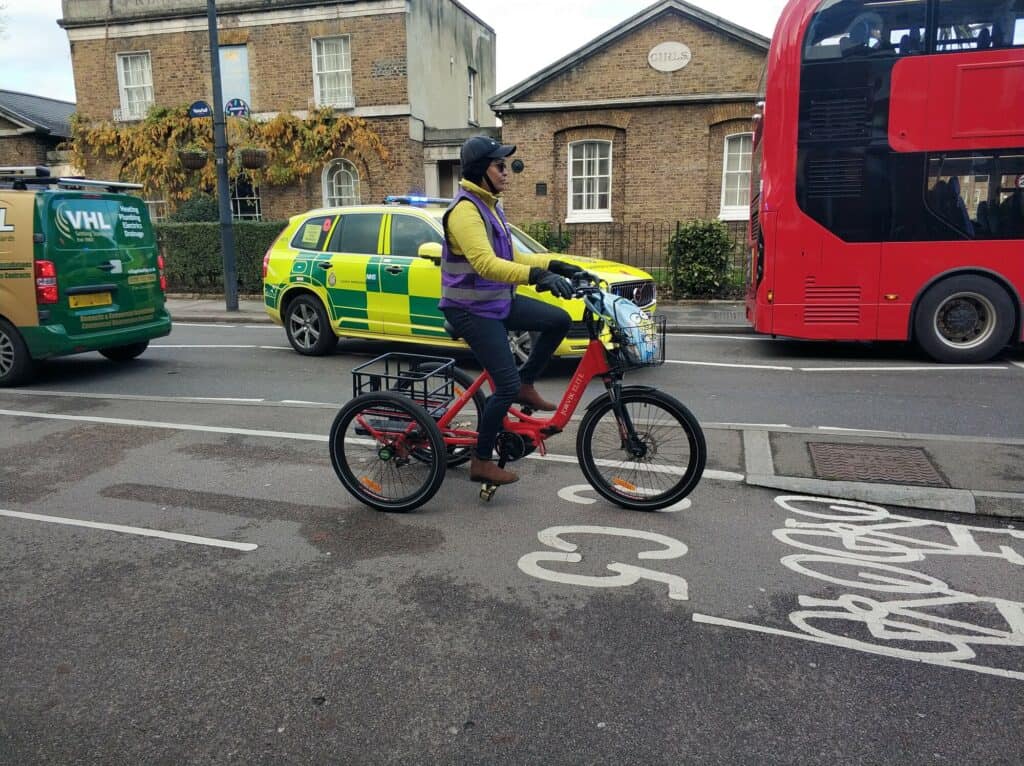
Wheels for Wellbeing are concerned by reports that the Chancellor is considering putting a maximum price for cycles allowed through the Cycle to Work scheme. While the scheme has never been perfect for Disabled cyclists, some have benefitted from it, opening up an affordable, accessible, healthy, transport option that they couldn’t have used otherwise.
Disabled cyclists are much more likely than other cyclists to need e-cycles, and many ride non-standard cycles (tricycles, handcycles, etc.) that are far more expensive than any bicycle of similar quality. Disabled cyclists are much more likely to suffer if a cap is put on the price of cycles that can be bought through the Cycle to Work scheme, and we therefore believe that any cap could breach the Equality Act 2010 unless there is an exemption to the cap for Disabled people.
Wheels for Wellbeing Director, Isabelle Clement MBE said “As Chief Medical Officer for England Chris Whitty pointed out in July, getting those who move the least to move a little more is what gives the best return on investment. Currently, Disabled people make fewer journeys across all transport types than non-disabled people, 38% fewer for mobility impaired people, and for many, simply accessing an appropriate mobility aid to make a 1km journey is impossible. It would make little sense to reduce the ability of the Cycle to Work scheme to support those who need it the most by introducing a cap.
“The reform that is really needed to the Cycle to Work scheme is to make it more generous for Disabled people, including those on the minimum wage and those who don’t pay PAYE tax and who are therefore currently excluded. We also call for further options to enable people who are self-employed or not in employment to access cycles that suit their needs”.
ENDS
Notes: 1) On the cost of Disabled people’s cycles, see chapter 2 of Wheels for Wellbeing’s “Guide to Inclusive Cycling”, notably figures 6 and 11, and sections 2.3.2. and 2.3.6. https://wheelsforwellbeing.org.uk/wheels-for-wellbeing-guide-to-inclusive-cycling-5th-edition-september-2025/
2) Chris Whitty was speaking at the Active City conference in York. See for example the report
https://www.theguardian.com/uk-news/2025/jul/02/chris-whitty-culture-wars-cycling-health-nhs.
3) On Disabled people unable to access mobility aids, see Disabled Ramblers. “Not Enough Wheels to Go Round.” 2022.
https://disabledramblers.co.uk/wp3/wp-content/uploads/2022/08/NotEnoughWheelsFinal.v.2.2.pdf.
4) On Disabled people making fewer journeys see Motability Foundation. “The Transport Accessibility Gap.” 2022.
5) Only 6% of cycles funded by Cycle to Work are over £2000
6) Restrictions on Cycle to Work already mean that it is not permitted to buy a cycle purely for leisure purposes. 50 per cent of a bike’s use must be made up of ‘qualifying journeys’, such as commuting to work.
https://www.bikeradar.com/advice/buyers-guides/cycle-to-work-scheme-everything-you-need-to-know
